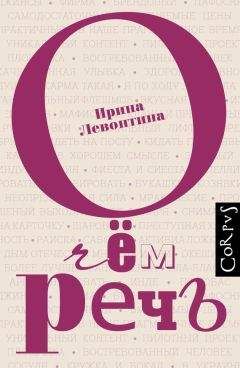Майк Морено - Как остановить старение и стать моложе. Результат за 17 дней
American Cancer Society. 2011. Women and smoking. http://www.cancer.org/Cancer/CancerCauses/TobaccoCancer/WomenandSmoking/women-and-smoking-health-of-others.
American Council on Exercise. Exercise and menopause. http://www.ace-fitness.org/fitfacts/fitfacts_display.aspx?itemid=91.
American Institute for Cancer Research. Foods that fight cancer. http://www.aicr.org/foods-that-fight-cancer/.
Bachmann, G. A., et al. 2000. Diagnosis and treatment of atrophic vaginitis. American Family Physician 61(10): 3090-96.
Beral, V., et al. 2008. Collaborative Group on Epidemiological Studies of Ovarian Cancer. Ovarian cancer and oral contraceptives: Collaborative reanalysis of data from 45 epidemiological studies including 23,257 women with ovarian cancer and 87,303 controls. Lancet 371(9609): 303-14.
Beral, V., et al. 2005. Endometrial cancer and hormone-replacement therapy in the Million Women Study. Lancet 365(9470): 1543-51.
Bianchini, F., et al. 2002. Overweight, obesity, and cancer risk. Lancet Oncology, 3(9): 565-74.
Chen, W. Y., et al. 2011. Moderate alcohol consumption during adult life, drinking patterns, and breast cancer risk. Journal of the American Medical Association 306(17): 1884-90.
Decahanet, C., et al. 2011. Effects of cigarette smoking on reproduction. Human Reproduction Update 17(1): 76-95.
Division of Cancer Prevention and Control, National Center for Chronic Disease Prevention and Health Promotion. 2010. Ovarian cancer risk factors. http://www.cdc.gov/cancer/ovarian/basic_info/risk_factors.htm.
Harvard Women’s Health Watch. 2007. Pelvic organ prolapse can run in family. 14(9): 3.
Hull, M. G., et al. 2000. Delayed conception and active and passive smoking. The Avon Longitudinal Study of Pregnancy and Childhood Study Team. Fertility and Sterility 74(4): 725-33.
Jeng, C., et al. 2004. Menopausal women: Perceiving continuous power through the experience of regular exercise. Journal of Clinical Nursing 13(4): 447-54.
Krishnan, A. V., et al. 2012. The role of vitamin D in cancer prevention and treatment. Rheumatic Diseases Clinics of North America 38(1): 161-78.
Liu, R. H. 2004. Potential synergy of phytochemicals in cancer prevention: Mechanism of action. Journal of Nutrition 134(12 Suppl.): 3479S-85S.
Maeda, N., et al. 2011. Anti-cancer effect of spinach glycoglycerolipids as angiogenesis inhibitors based on the selective inhibition of DNA polymerase activity. Mini Reviews in Medicinal Chemistry 11(1): 32-38.
Mayo Clinic. 2011. Menopause. http://www.mayoclinic.com/health/menopause/ds00119/dsection=alternative-medicine.
Mayo Clinic. 2012. Premenstrual syndrome (PMS). http://www.mayoclinic.com/health/premenstrual-syndrome/ds00134/dsection=alternative-medicine.
National Cancer Institute. 2010. What you need to know about ovarian cancer. http://www.cancer.gov/cancertopics/wyntk/ovary/allpages.
Norman, R. J., et. al. 2004. Improving reproductive performance in overweight/obese women with effective weight management. Human Reproductive Update 10(3): 267-80.
Rocha Filho, E. A., et al. 2011. Essential fatty acids for premenstrual syndrome and their effect on prolactin and total cholesterol levels: A randomized, double blind, placebo-controlled study. Reproductive Health 8: 2.
Seitz, H. K., and P. Becker, 2007. Alcohol metabolism and cancer risk. Alcohol Research & Health: Journal of the National Institute on Alcohol Abuse and Alco holism 30(1): 38-41.
Soares, S. R., and M. A. Melo. 2008. Cigarette smoking and reproductive function. Current Opinion in Obstetrics & Gynecology (June).
Sun, L., et al. 2012. Meta-analysis suggests that smoking is associated with an increased risk of early natural menopause. Menopause 19(2): 126-32.
U.S. Department of Agriculture. 2012. Agriculture Research Service, National Agriculture Library. National Nutrient Database for Standard Reference.
Villaverde-Gutierrez, C., et al. 2006. Quality of life of rural menopausal women in response to a customized exercise programme. Journal of Advanced Nursing 54(1): 11-19.
Walker, G.R., et al. 2002. Family history of cancer, oral contraceptive use, and ovarian cancer risk. American Journal of Obstetrics and Gynecology 186(1): 8-14.
Yao, L.H., 2004. Flavonoids in food and their health benefits. Plant Foods for Human Nutrition (Netherlands) 59(3): 113-22.
Zavos, P. 2000. Cigarette smoking and sexual health. American Council on Science and Health.
Ziaei, S., et al. 2007. The effect of vitamin E on hot flashes in menopausal women. Gynecologic and Obstetric Investigation 64(4): 204-7.
Глава 13. Мужчина – мачо
Adam, O., et al. 2003. Anti-inflammatory effects of a low arachidonic acid diet and fish oil in patients with rheumatoid arthritis. Rheumatology International (1): 27-36.
American Cancer Society. 2012. Testicular cancer. http://www.cancer.org/Cancer/TesticularCancer/DetailedGuide/testicular-cancer-key-statistics.
Barry, M. J., et al. 2011. Effect of increasing doses of saw palmetto extract on lower urinary tract symptoms: A randomized trial. Journal of the American Medical Association 306(12): 1344-51.
Billups, K. L., et al. 2003. Relation of C-reactive protein and other cardiovascular risk factors to penile vascular disease in men with erectile dysfunction. Interna tional Journal of Impotence Research 15(4): 231-36.
Chavarro, J. E., et al. 2008. Soy food and isoflavone intake in relation to semen quality parameters among men from an infertility clinic. Human Reproduction 23(11): 2584-90.
Esposito, K., et al. 2005. High proportions of erectile dysfunction in men with the metabolic syndrome. Diabetes Care 28(5): 1201-3.
Hammadeh, M. E., et al. 2010. Protamine contents and P1/P2 ratio in human spermatozoa from smokers and non-smokers. Human Reproduction 25(11): 2708-20.
Institute of Medicine of the National Academies. 2002/2005. Dietary reference intakes for energy, carbohydrate, fiber, fat, fatty acids, cholesterol, protein, and amino acids. http://www.iom.edu/Global/News%20Anno un cements/~/media/C5CD2DD784544979A549EC47E56A02B.ashx.
Ma, R. C. W., and P. C. Y. Tong. 2010. Testosterone levels and cardiovascular disease. Heart 96: 1787-88.
Mamsen, L. S., et al. 2010. Cigarette smoking during early pregnancy reduces the number of embryonic germ and somatic cells. Human Reproduction 25(11): 2755-61.
Mason, E. 2010. Smoking damages men’s sperm and also the numbers of germ and somatic cells in developing embryos. European Society of Human Reproduction and Embryology.
Mayo Clinic. 2012. Erectile dysfunction. http://www.mayoclinic.com/health/erectile-dysfunction/ds00162/dsection=risk-factors.
Mills, T. M. 2002. Vasoconstriction and vasodilatation in erectile physiology. Current Urology Reports 3(6): 477-83.
National Institute of Diabetes and Digestive and Kidney Diseases, National Institutes of Health. 2006. Prostate enlargement: Benign prostate hyperplasia. Publication No. 07-3012
National Institutes of Health (MH) Consensus Conference. 1993. NIH Consensus Development Panel on impotence. impotence. Journal of the American Medical Association 270: 83-90.
Pittman, G. 2012. Sperm may feel the weight of extra pounds: Study. Reuters Health. http://www.reuters.com/article/2012/03/15/us-weight-idUSBRE82 E14820120315.
Sermondade, N., et al. 2012. Obesity and increased risk of oligozoospermia and azoospermia. Archives of Internal Medicine 172(5): 440-42.
Siepmann, T., 2011. Hypogonadism and erectile dysfunction associated with soy– product consumption. Nutrition 27(7-8): 859-62.
Simonsen, U., et al. 2002. Penile arteries and erection. Journal of Vascular Research 39(4): 283-303.
Suzuki, S., et al. 2002. Intakes of energy and macronutrients and the risk of benign prostatic hyperplasia. American Journal of Clinical Nutrition 75(4): 689-97.
Tivesten, A., et al. 2009. Low serum testosterone and estradiol predict mortality in elderly men. Journal of Clinical Endocrinology and Metabolism 94(7): 2482-88.
Travison, T. October 2006. Online Edition. News release, The Endocrine Society. Journal of Clinical Endocrinology and Metabolism.
U.S. National Library of Medicine, National Institutes of Health. 2011. Enlarged prostate. www.nlm.nih.gov/medlineplus/ency/article/000381.htm
U.S. National Library of Medicine, National Institutes of Health. 2011. Saw palmetto. http://www.nlm.nih.gov/medlineplus/druginfo/natural/971.html.
Глава 14. Держите свою струю под контролем
8 Areas of Age-Related Change. 2007. NIH Medline Plus 2(1): 10-13. http://www.nlm.nih.gov/medlineplus/magazine/issues/winter07/articles/winter07pg10-13 .html.
American Cancer Society. 2012. Prostate cancer. http://www.cancer.org/Cancer/ProstateCancer/DetailedGuide/prostate-cancer-key-statistics.
Ballard, A., and H. Richter. 2011. Impact of obesity and weight loss on urinary and bowel incontinence. Menopausal Medicine 9(3).
Brown, J. S., R. Wing, E. Barrett-Connor, et al. 2006. Diabetes Prevention Program Research Group. Life-style intervention is associated with lower prevalence of urinary incontinence: The Diabetes Prevention Program. Diabetes Care 29(2): 385-90.
Culligan, P., and M. Heit. 2000. Urinary incontinence in women: Evaluation and management. American Family Physician 62(11): 2433-44.
Curhan, G. C. 2011. Nephrolithiasis. In: Goldman L, Schafer AI, eds., Cecil Medicine 24th ed., chap 128.
Finkielstein, V. A. 2006. Strategies for preventing calcium oxalate stones. Canadian Medical Association Journal 174(10): 1407-9.
Gerber G. S., and C. B. Brendler. 2007. Evaluation of the urologic patient: History, physical examination, and the urinalysis. Campbell-Walsh Urology, 9th ed., chap. 3.
Grandwohl, S., et al. 2005. Urinary tract infection. University of Michigan Health Sys tem. http://cme.med.umich.edu/pdf/guideline/uti05.pdf.
Hansen, A., et al. 2011. Older persons and heat-susceptibility: The role of health promotion in a changing climate. Health Promotion Journal of Australia 22(Spec. No.): S17-20.
Jaipadkee, S., et al. 2004. The effects of potassium and magnesium supplements on urinary risk factors of renal stone patients. Journal of the Medical Association of Thailand 87(3): 255-63.
Kontiokari, T., et al. 2003. Dietary factors protecting women from urinary tract infection. American Journal of Clinical Nutrition 29(2): 266-69.
Makary, M. A., et al. 2012. The impact of obesity on urinary tract infection risk. Urology 79(2): 266-69.
Marieb, E. N. 1998. Human Anatomy & Physiology. Menlo Park, Calif.: Benjamin/Cummings.
Mayo Clinic. September 30, 2011. http://www.mayoclinic.com/health/urine-color/DS01026.
The Merck Manuals: The Merck Manual for Healthcare Professionals. 2008. Dehydration. http://www.merckmanuals.com/home/hormonal_and_metabolic_disorders/water_balance/dehydration.html.
National Institute of Diabetes and Digestive and Kidney Diseases, National Institutes of Health. 2006. Prostate enlargement: Benign prostatic hyperplasia. Publication No. 07-3012.
National Institute of Diabetes and Digestive and Kidney Diseases, National Institutes of Health. 2007. Urinary incontinence in women. Publication No. 08-4132.
National Institutes of Health of the U.S. Department of Health and Human Services. 2007. Your urinary system and how it works. Publication No. 07-3195.
National Kidney Foundation. 2012. Urinary tract infections. http://www.kidney.org/atoz/content/uti.cfm.
Nikolavsky, D., and M. Chancellor. 2009. Stress incontinence and prolapse therapy assessment. Reviews in Urology 11(1): 41-43.
Pietrow, P. K., and G. M. Preminger. 2007. Evaluation and medical management of urinary lithiasis. In: Wein, A. J., ed., Campbell-Walsh Urology, 9th ed. Philadelphia: Saunders Elsevier, chap 43.
Plowman, S. A., Smith, D.L. 2011. Exercise Physiology for Health, Fitness and Performance, 3rd ed. Philadelphia: Wolters Kluwer Health/Lippincott Williams & Wilkins.
Sheehy, C. M., et al. 1999. Dehydration: Biological considerations, age-related changes, and risk factors in older adults. Biological Research for Nursing 1(1): 30-37.
Spector, D. A. 2007. Urinary stones. Principles of Ambulatory Medicine, 7th ed., 754-66.
Subak, L. L., C. Johnson, E. Whitcomb, et al. 2002. Does weight loss improve incontinence in moderately obese women? International Urogynecology Journal and Pelvic Floor Dysfunction 13(1): 40-43.
Subak, L. L., E. Whitcomb, H. Shen, et al. 2005. Weight loss: A novel and effective treatment for urinary incontinence. Journal of Urology 174(1): 190-95.
U.S. National Library of Medicine, National Institutes of Health. 2011. Urinary Tract Infections – Adults. http://www.nlm.nih.gov/medlineplus/ency/article/ 000521.htm.
UT Southwestern Medical Center. 2004. Excess body weight linked to formation of uric acid kidney stones, UT Southwestern researchers find. http://www.utsouthwestern.edu/newsroom/news-releases/year-2004/excess-body -weight-linked-to-formation-of-uric-acid-kidney-stones-ut-south-western -researchers-find.html.
Vulker, R. 1998. International group seeks to dispel incontinence «taboo.» Journal of the American Medical Association 11: 951-53.
Yale Medical Group. Urinary tract infections (UTIs). http://www.yaleme-dicalgroup.org/stw/Page.asp?PageID=STW024091.
Zeegers, M. P., F. E. Tan, E. Dorant, and P. A. van Den Brandt. 2000. The impact of characteristics of cigarette smoking on urinary tract cancer risk: A meta analysis of epidemiologic studies. Cancer 89(3): 630-39. http://www.ncbi .nlm.nih.gov/pubmed/10931463.
Глава 16. Очистить воздух от токсинов
Alcaraz-Zubeldia, M., et al. 2008. The effect of supplementation with omega-3 poly– unsaturated fatty acids on markers of oxidative stress in elderly exposed to PM. Environmental Health Perspectives 116(9).
Baldi, I., et al. 2011. Neurobehavioral effects of long-term exposure to pesticides: Results from the 4-year follow-up of the PHYTONER study. Occupational and Environmental Medicine 68(2): 108-15.
Bouchard, M. F., et. al. 2010. Attention-deficit/hyperactivity disorder and urinary metabolites of organophosphate pesticides. Pediatrics 6: e1270-77.
Bronstein, A. C., et al. 2009. 2008 Annual Report of the American Association of Poison Control Centers’ National Poison Data System (NPDS): 26th Annual Report. Clinical Toxicology 47: 911-1084.
Centers for Disease Control and Prevention (US); National Center for Chronic Disease Prevention and Health Promotion (US); Office on Smoking and Health (US). 2010. How tobacco smoke causes disease: The biology of behavioral basis for smoking-attributable disease: A Report of the Surgeon General.
Environmental Working Group. Executive Summary, Shopper’s Guide to Pesticides in Produce. http://www.ewg.org/foodnews/summary/.
Fang, Y. Z., et al. 2004. Glutathione metabolism and its implications for health. Journal of Nutrition 134(3): 489-92.




